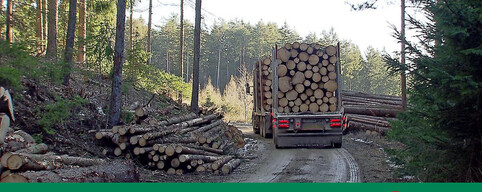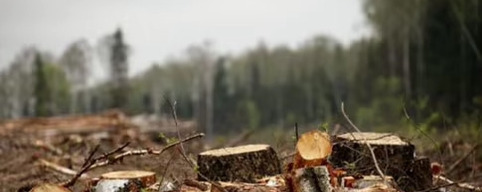

A recent meeting in the picturesque Allgäu region has sparked important discussions about the future of forestry. The meeting was initiated by CSU Member of Parliament Stephan Stracke, who has set himself the task of highlighting the challenges facing the forestry industry in this region and finding solutions. Representatives of the Füssen and Marktoberdorf forestry associations and Andreas Täger, who represented the AllgäuHolz brand association, were invited.
One of the central topics of the meeting was the influence of climate change on the forests of our country, especially in the Allgäu. While this region is currently still benefiting from stable climatic conditions, with sufficient rainfall and a satisfactory groundwater level, dramatic changes are already becoming apparent in other parts of Germany. Regions such as Franconia are increasingly suffering from periods of drought and severe storms, which is having a significant impact on local forestry.
The representatives of the forestry associations and the AllgäuHolz brand association shared valuable insights into specific challenges and strategies for preserving typical local forest structures. Despite the current stability, all participants agree that it is important to plan ahead. The forests in the Allgäu are not only important for the local ecosystem, but also for the economy, as they provide numerous jobs and a variety of services.
Stephan Stracke emphasized the absolute necessity of well thought-out political measures to support the forestry industry in the face of climate change. He pointed out that environmental protection policy and forestry policy should be more closely linked in order to tackle common challenges efficiently. The federal government is called upon to develop concrete and long-term strategies to secure and sustainably shape forestry not only in the Allgäu, but also in other regions of Germany. Topics such as reforestation, sustainable wood use and the protection of biodiversity in forests are moving to the forefront of the political agenda.
According to Stracke, the development of such strategies requires close cooperation between politics, business and science. Only by pooling expertise from these areas can effective solutions be found to safeguard forests. The meeting in the Allgäu region served as an important impetus for strengthening this cooperation and encouraging proactive action.
The aim of these initiative-driven conferences is to develop concrete action plans to help preserve the forests in the Allgäu and other affected regions in the long term. Necessary measures, such as rethinking forest area planning and promoting sustainable forestry methods, could make the difference in the forests' ability to adapt to climate change. In addition, it was emphasized that informing and raising awareness among the population plays an essential role in gaining broad support for the goals set.
In summary, it can be said that the sustainable management of forests makes an essential contribution to combating the effects of climate change. Meetings and discussions such as those led by Stephan Stracke provide the necessary impetus for the regional and supra-regional forestry industry to face the challenges of the future and preserve the environment for future generations.



